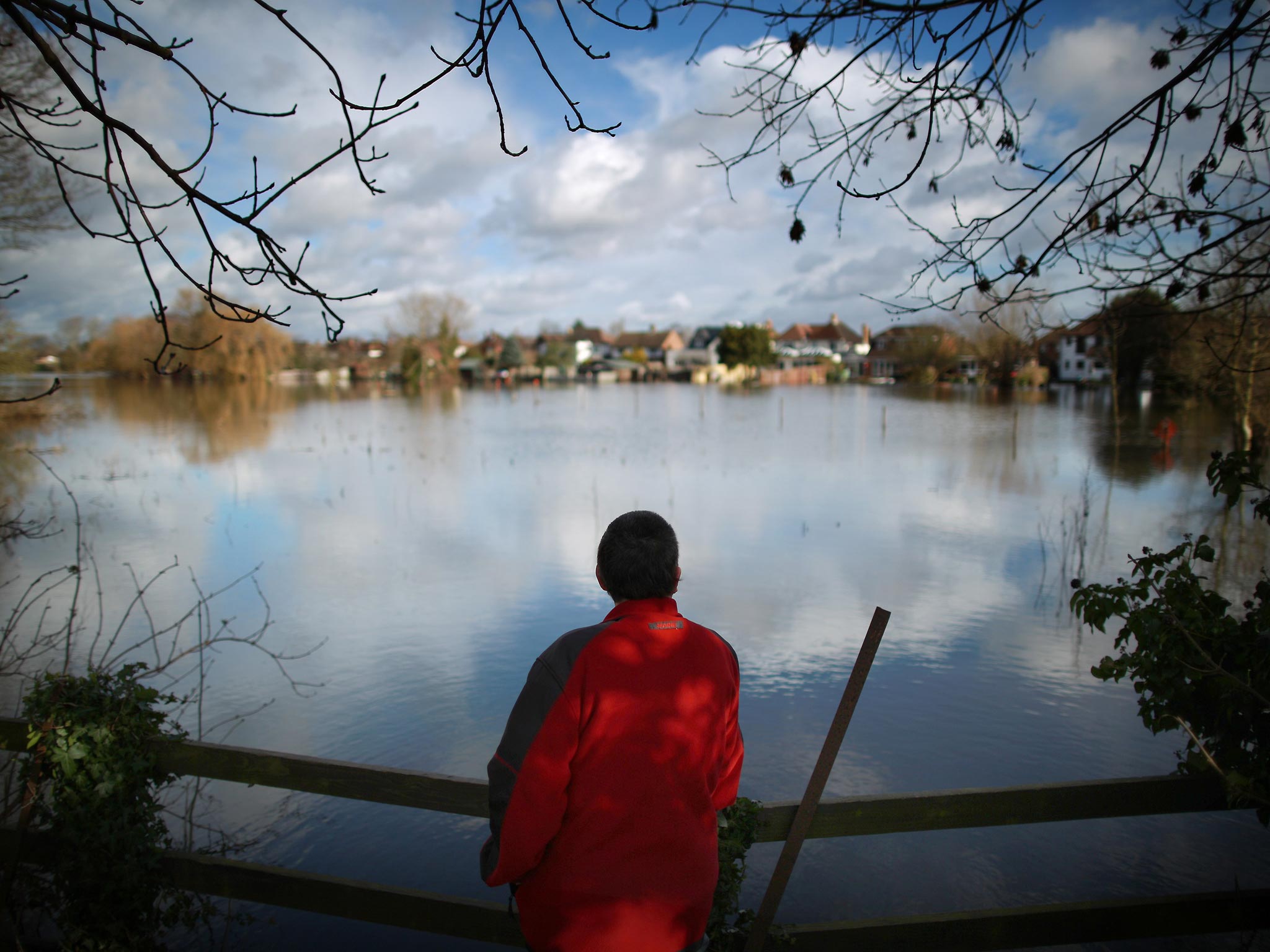UK weather: U-turn may see David Cameron reluctantly tap EU flood assistance fund
Conservative ministers ruled out asking Brussels for help and were accused of putting politics before communities

Conservative ministers are set to make an embarrassing U-turn and ask the European Union to pick up some of the bill for the flooding crisis following Coalition clashes over whether to approach Brussels for help.
Just two weeks ago they were ruling out the move, provoking Liberal Democrat accusations they were allowing the party’s antipathy to the EU to supersede the needs of flood-stricken communities. However, Downing Street confirmed the Government was “ actively looking” at submitting an application to an EU emergency fund.
The move emerged after Brussels officials expressed surprise they had not heard from the UK Government when torrential rain and winds forced hundreds of people out of their homes and devastated rail links to the South-west of England.
The possibility of requesting help from Brussels was discussed at a meeting of Cobra, Whitehall’s civil contingencies committee, which is chaired by David Cameron. Ministers and officials are now examining whether the UK fits the strict criteria for applying to the fund. If an application is successful, Britain could be in line for a payout of more than £100m.
One Whitehall source told The Independent: “My sense is we will apply for it if we can, although that is still quite a big if.” The move would be politically hazardous for the Conservatives, considering the sensitivity of the EU as an issue within party ranks.
Whether to apply to the EU’s solidarity fund provoked a Cabinet split, with Liberal Democrats Nick Clegg and Danny Alexander accusing Chancellor George Osborne and Owen Paterson, the Environment Secretary, of allowing ideology to stand in the way of practical help. The Treasury also raised objections as some of the cash would be clawed back at a later stage by Brussels.
Early last month, Liberal Democrat Euro MPs appealed to Mr Paterson to apply to the EU’s solidarity fund, set up to help governments react to natural disasters.
In a reply on 29 January, before stretches of the Thames Valley were inundated, Brandon Lewis, the minister responsible for flood recovery, said the situation could not yet be “categorised as a major natural disaster” and said Britain should not be “hasty” in turning to the fund.
He said: “While we are still assessing the scale of the damage, it looks very unlikely that the UK will either need, or qualify for, support under the scheme.”
In the Commons, the Tory former Cabinet minister Cheryl Gillan pointed out that Britain received £127m from the fund after widespread flooding in 2007 which left a repair bill of more than £3bn.
Patrick McLoughlin, the Transport Secretary, told her: “I can reassure you this was a matter which was discussed last night in the Cobra meeting and the Cabinet Office Minister [Francis Maude] is looking at all the avenues for collecting any money that might be available.”
Asked about the prospect of applying for EU assistance, the Prime Minister’s official spokesman said: “We want to provide the maximum support to communities. We will very actively look at every way in which that can be done.”
Sir Graham Watson, the leader of the EU-wide Liberal group in the European Parliament, said: “British taxpayers pay into this fund. We should be able to draw down from that – Germany and the Czech Republic did last year when they had terrible flooding on the River Elbe.”
Mr Cameron has promised the Government will spend “whatever it takes” to ensure life returns to normal in communities battered by extreme weather.
The Government has pledged £130m to tackle the emergency and Mr Cameron this week announced grants of up to £5,000 for homeowners to install flood defences, a fund of £10m to help farmers clear up devastated land and moves to waive for three months the business rates and taxes faced by affected companies.
The cash will come from a mixture of departmental budgets and central contingency funds held by the Treasury.
Under the EU solidarity fund, a proportion of any money paid out would be trimmed later from the UK budget rebate from Brussels. Britain has 10 weeks from when floods first hit to request aid. Since its establishment in 2002, the EU fund has distributed around £2.9bn to 23 EU members.
Join our commenting forum
Join thought-provoking conversations, follow other Independent readers and see their replies
Comments
Bookmark popover
Removed from bookmarks